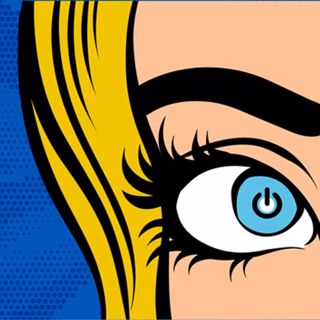
The Social Serendipity of Cloud Gaming
True cloud-native games—those exclusive to and solely playable within the cloud—are poised to revolutionize gameplay and unlock new avenues of hyper-personalized storytelling and socializing. It's a vision that, though steadily advancing, is still in its early stages. Just one year ago this week, Google launched its cloud gaming service, Stadia, which shares the space with competitors including Microsoft's xCloud, Playstation Now, and Nvidia’s GeForce. In this episode, Jade Raymond, VP of Stadia Games and Entertainment, Jonathan Lai, formerly of Riot Games and Tencent, and host Lauren Murrow talk about the challenges in building cloud-native games, their potential to upend prevailing business models and pricing, and, most importantly, the spontaneous, social, super-shareable experiences that true cloud streaming will reveal. Through the rise of user-generated content, AI, and the cloud, they believe we're inching ever closer to the Metaverse.This episode is part of Social Strikes Back, a new series exploring the next generation of social networks and how they’re shaping the future of consumer tech. See more at a16z.com/social-strikes-back. Stay Updated:Find a16z on XFind a16z on LinkedInListen to the a16z Podcast on SpotifyListen to the a16z Podcast on Apple PodcastsFollow our host: https://twitter.com/eriktorenberg Please note that the content here is for informational purposes only; should NOT be taken as legal, business, tax, or investment advice or be used to evaluate any investment or security; and is not directed at any investors or potential investors in any a16z fund. a16z and its affiliates may maintain investments in the companies discussed. For more details please see a16z.com/disclosures. Hosted by Simplecast, an AdsWizz company. See pcm.adswizz.com for information about our collection and use of personal data for advertising.
16 Nov 202038min

The Great Data Debate
Lakes v. warehouses, analytics v. AI/ML, SQL v. everything else... As the technical capabilities of data lakes and data warehouses converge, are the separate tools and teams that run AI/ML and analytics converging as well?In this podcast, originally recorded as part of Fivetran's Modern Data Stack conference, five leaders in data infrastructure debate that question: a16z general partner and pioneer of software defined networking Martin Casado, former CEO of Snowflake Bob Muglia; Michelle Ufford, founder and CEO of Noteable; Tristan Handy, founder of Fishtown Analytics and leader of the open source project dbt; and Fivetran founder George Fraser.The conversation covers the future of data lakes, the new use cases for the modern data stack, data mesh and whether decentralization of teams and tools is the future, and how low we actually need to go with latency. And while the topic of debate is the modern data stack, the themes and differing perspectives strike at the heart of an even bigger: how does technology evolve in complex enterprise environments? Stay Updated:Find a16z on XFind a16z on LinkedInListen to the a16z Podcast on SpotifyListen to the a16z Podcast on Apple PodcastsFollow our host: https://twitter.com/eriktorenberg Please note that the content here is for informational purposes only; should NOT be taken as legal, business, tax, or investment advice or be used to evaluate any investment or security; and is not directed at any investors or potential investors in any a16z fund. a16z and its affiliates may maintain investments in the companies discussed. For more details please see a16z.com/disclosures. Hosted by Simplecast, an AdsWizz company. See pcm.adswizz.com for information about our collection and use of personal data for advertising.
13 Nov 202026min

How to Moderate Talks, Panels, Meetings, More (Virtual and Beyond!)
How to moderate good, productive discussions and navigate tricky conversations is top of mind -- whether doing a panel, conducting a live event, presenting a talk (or hosting a podcast), managing (and even just participating in!) a meeting. Especially in a world where remote and virtual work is increasingly become the norm for many knowledge workers, one in which we're increasingly communicating through little "Hollywood Squares, Brady Bunch"-like boxes.So how to translate physical and nonverbal presence in such virtual environments, or voice-only modes? How to manage unruly discussions? Do parasocial vs. social interactions change things? And beyond these broader contexts, how do the things inside us -- whether agendas, tics, anxiety -- manifest outwardly, and can we better control them?In this episode of the a16z Podcast, Matt Abrahams -- lecturer at Stanford’s Graduate School of Business (where he also has a podcast, "Think Fast Talk Smart"); principal and co-founder of Bold Echo (a company that helps people with presentation and communication skills); and author of Speaking Up Without Freaking Out -- shares frameworks and best practices, in conversation with Sonal Chokshi. The discussion offers many concrete tips for moderation and communication for anyone, across all kinds of mediums and modes. image: Paul Hudson / Flickr Stay Updated:Find a16z on XFind a16z on LinkedInListen to the a16z Podcast on SpotifyListen to the a16z Podcast on Apple PodcastsFollow our host: https://twitter.com/eriktorenberg Please note that the content here is for informational purposes only; should NOT be taken as legal, business, tax, or investment advice or be used to evaluate any investment or security; and is not directed at any investors or potential investors in any a16z fund. a16z and its affiliates may maintain investments in the companies discussed. For more details please see a16z.com/disclosures. Hosted by Simplecast, an AdsWizz company. See pcm.adswizz.com for information about our collection and use of personal data for advertising.
5 Nov 20201h 2min

Textiles as Tech, Science, Math, Culture... or Civilization
"The most profound technologies are those that disappear. They weave themselves into the fabric of everyday life until they're indistinguishable from it." That quote from computer scientist Mark Weiser is from a 1991 paper where he outlined the vision of ubiquitous computing; in it, he also referenced "seamlessness"... We just can't get away from textile metaphors: we catch airline "shuttles", we "weave" through traffic, we follow comment "threads” -- the metaphors are as ubiquitous and abundant and threaded throughout our lives as the textiles (and computing) all around us.In fact, argues author and columnist Virginia Postrel, the story of textiles IS the story of technology and science (across all kinds of fields, from biology to chemistry); of commerce (as well as management, measurement, machines); but most of all, of civilization (vs. just culture) itself. That's what her new book, The Fabric of Civilization: How Textiles Made the World is all about. But it's really a story and history of innovation, and of human ingenuity... which is also the theme of the a16z Podcast -- and of this special, inaugural book launch episode with the author in conversation with showrunner Sonal Chokshi.The discussion both dives deep and lightly dips into a wide range of topics: fabrics, from the genetics of cotton to the supply chain of silk (including pre-Industrial Revolution factories, early payment and incentive alignment, "maestre" and notions of expertise); knowledge, from the storage and transmission of it to sharing tacit and explicit code (including manuals, notation, measures); and math as the science of patterns, origins of mathematics (including early education and getting paid for it). The touch on the NASA space program, knitting and AI, and the environmental impact of dyes. Throughout, they discuss the what and the why -- the warp and weft of this episode! -- of HOW innovation happens, from incremental improvements to sudden leaps, also taking a closer look at the demographics and images involved. And finally, they cover the evolution and meaning of kente cloth (as well as other patterns) in Ghana and beyond... Because the story of textiles -- and of technology -- is not just a story of one culture or time or place: it is a universally human story, woven from countless threads and wires.links & other articles mentioned in this episode:YouTube & Instagram from the author, featuring cited images among othersThe Computer for the 21st Century, Mark Weiser, Scientific American, 1991Every topological surface can be knit: a proof, Sarah-Marie Belcastro, Journal of Mathematics and the Arts, 2009How an AI took over the an adult knitting community, Alexis Madrigal, The Atlantic, 2018Portrait of a Man, Portrait of a Woman, Maarten van Heemskerck, Rijks Museum, 1529In Ghana, pandemic inspires new fabrics, Kent Mensah, Christian Science Monitor 2020Welcome to the new world civilization, Virginia Postrel, Reason, 2020images: composite of knitting by © sarah-marie belcastro (courtesy Virginia Postrel) + magnetic core memory wires & beads, magnified 60x (photo from Virginia Postrel) -- combined by Sonal Chokshi for the a16z Podcast Stay Updated:Find a16z on XFind a16z on LinkedInListen to the a16z Podcast on SpotifyListen to the a16z Podcast on Apple PodcastsFollow our host: https://twitter.com/eriktorenberg Please note that the content here is for informational purposes only; should NOT be taken as legal, business, tax, or investment advice or be used to evaluate any investment or security; and is not directed at any investors or potential investors in any a16z fund. a16z and its affiliates may maintain investments in the companies discussed. For more details please see a16z.com/disclosures. Hosted by Simplecast, an AdsWizz company. See pcm.adswizz.com for information about our collection and use of personal data for advertising.
24 Okt 20201h 11min

Data Alone Is Not Enough: The Evolution of Data Architectures
Data, data, data – it’s long been a buzzword in the industry, whether big data, streaming data, data analytics, data science, even AI & machine learning — but data alone is not enough: it takes an entire system of tools and technology to extract value from data. A multibillion dollar industry has emerged around data tools and technologies. And with so much excitement and innovation in the space: how exactly do all these tools fit together? This podcast – a hallway style conversation between Ali Ghodsi, CEO and Founder of Databricks, and a16z general partner Martin Casado – explores the evolution of data architectures, including some quick history, where they’re going, and a surprising use case for streaming data, as well as Ali’s take on how he’d architect the picks and shovels that handle data end-to-end today. Stay Updated:Find a16z on XFind a16z on LinkedInListen to the a16z Podcast on SpotifyListen to the a16z Podcast on Apple PodcastsFollow our host: https://twitter.com/eriktorenberg Please note that the content here is for informational purposes only; should NOT be taken as legal, business, tax, or investment advice or be used to evaluate any investment or security; and is not directed at any investors or potential investors in any a16z fund. a16z and its affiliates may maintain investments in the companies discussed. For more details please see a16z.com/disclosures. Hosted by Simplecast, an AdsWizz company. See pcm.adswizz.com for information about our collection and use of personal data for advertising.
23 Okt 202021min

Designing for, Marketing to, and Partnering With Gen Z
Gen Z—those born between 1995 and 2010—now makes up 35 percent of the population and represent $143 billion dollars in spending power. This episode is all about how brands can better understand, collaborate with, and resonate with this hugely influential segment of consumers. Our guest, Tiffany Zhong, is the 24-year-old CEO of Zebra IQ, a company that helps brands interpret the wants of Gen Z consumers and helps Gen Z creators turn their content into businesses. In its recent Gen Z Trends Report, her company highlights important cultural trends and Gen Z behaviors based on a trove of proprietary research. In this conversation, Tiffany and a16z general partner Connie Chan discuss the key differences between Gen Z and millennials, the growing power of short-form video on platforms like TikTok and YouTube, our changing perception of luxury, and how Gen Z is shifting the paradigm around money, education, and work.The pair breaks down how brands can partner with Gen Z influencers in a way that’s compelling, not cringeworthy, and why when it comes to memes and the art of emoji, you’re probably doing it wrong. Stay Updated:Find a16z on XFind a16z on LinkedInListen to the a16z Podcast on SpotifyListen to the a16z Podcast on Apple PodcastsFollow our host: https://twitter.com/eriktorenberg Please note that the content here is for informational purposes only; should NOT be taken as legal, business, tax, or investment advice or be used to evaluate any investment or security; and is not directed at any investors or potential investors in any a16z fund. a16z and its affiliates may maintain investments in the companies discussed. For more details please see a16z.com/disclosures. Hosted by Simplecast, an AdsWizz company. See pcm.adswizz.com for information about our collection and use of personal data for advertising.
19 Okt 202032min

The Present Future of Audio: Talk, Music, Video, Interactivity
We've already talked a lot about podcasting, both evolution of the industry as well as the form, but where are we going with the future of audio, more broadly? Can we borrow from the present and future of video (e.g., TikTok) to see what's next in audio (more layers, more interactivity)? Can we borrow from the past of audio (i.e., radio) to see what's next for audio experiences (more blending of music, talk, podcasting)? Where do all these mediums converge and where do they diverge -- when it comes to user experience, product design, recommendations, discovery?Gustav Söderström, chief R&D officer (who oversees the product, design, data, and engineering teams) at Spotify -- the world's most popular audio streaming subscription service -- joins this episode of the a16z Podcast for a deep dive on all things audio with a16z general partner Connie Chan and editor in chief Sonal Chokshi. They cover the past, present, and future of audio -- going high level into the big trends and also dipping down into the trenches -- especially given the increased blending of talk/ podcasting, music, more. What are the challenges to designing for different mediums, on both front end and back end (including machine learning and different graphs), when listeners want everything in one place when and where they want it... yet their contexts shift?But the conversation more broadly is really more about what happens when we give creators (of all kinds!) tools -- not just for expression but for fan engagement and monetization too. We also discuss the themes of super apps and full-stack approaches when it comes to innovating on top of a protocol, as well as how innovation happens in practice: How do mediums -- and organizations -- evolve, prioritize, "disrupt themselves"? All this and more in this episode.---The views expressed here are those of the individual AH Capital Management, L.L.C. (“a16z”) personnel quoted and are not the views of a16z or its affiliates. Certain information contained in here has been obtained from third-party sources, including from portfolio companies of funds managed by a16z. While taken from sources believed to be reliable, a16z has not independently verified such information and makes no representations about the enduring accuracy of the information or its appropriateness for a given situation. In addition, this content may include third-party advertisements; a16z has not reviewed such advertisements and does not endorse any advertising content contained therein.This content is provided for informational purposes only, and should not be relied upon as legal, business, investment, or tax advice. You should consult your own advisers as to those matters. References to any securities or digital assets are for illustrative purposes only, and do not constitute an investment recommendation or offer to provide investment advisory services. Furthermore, this content is not directed at nor intended for use by any investors or prospective investors, and may not under any circumstances be relied upon when making a decision to invest in any fund managed by a16z. (An offering to invest in an a16z fund will be made only by the private placement memorandum, subscription agreement, and other relevant documentation of any such fund and should be read in their entirety.) Any investments or portfolio companies mentioned, referred to, or described are not representative of all investments in vehicles managed by a16z, and there can be no assurance that the investments will be profitable or that other investments made in the future will have similar characteristics or results. A list of investments made by funds managed by Andreessen Horowitz (excluding investments for which the issuer has not provided permission for a16z to disclose publicly as well as unannounced investments in publicly traded digital assets) is available at https://a16z.com/investments/.Charts and graphs provided within are for informational purposes solely and should not be relied upon when making any investment decision. Past performance is not indicative of future results. The content speaks only as of the date indicated. Any projections, estimates, forecasts, targets, prospects, and/or opinions expressed in these materials are subject to change without notice and may differ or be contrary to opinions expressed by others. Please see https://a16z.com/disclosures for additional important information. Stay Updated:Find a16z on XFind a16z on LinkedInListen to the a16z Podcast on SpotifyListen to the a16z Podcast on Apple PodcastsFollow our host: https://twitter.com/eriktorenberg Please note that the content here is for informational purposes only; should NOT be taken as legal, business, tax, or investment advice or be used to evaluate any investment or security; and is not directed at any investors or potential investors in any a16z fund. a16z and its affiliates may maintain investments in the companies discussed. For more details please see a16z.com/disclosures. Hosted by Simplecast, an AdsWizz company. See pcm.adswizz.com for information about our collection and use of personal data for advertising.
14 Okt 202056min

Tracking the Trends: AI, WebRTC, Crypto, and Full Stack Startups
Stay Updated:Find a16z on XFind a16z on LinkedInListen to the a16z Podcast on SpotifyListen to the a16z Podcast on Apple PodcastsFollow our host: https://twitter.com/eriktorenberg Please note that the content here is for informational purposes only; should NOT be taken as legal, business, tax, or investment advice or be used to evaluate any investment or security; and is not directed at any investors or potential investors in any a16z fund. a16z and its affiliates may maintain investments in the companies discussed. For more details please see a16z.com/disclosures. Hosted by Simplecast, an AdsWizz company. See pcm.adswizz.com for information about our collection and use of personal data for advertising.
11 Okt 202028min





















